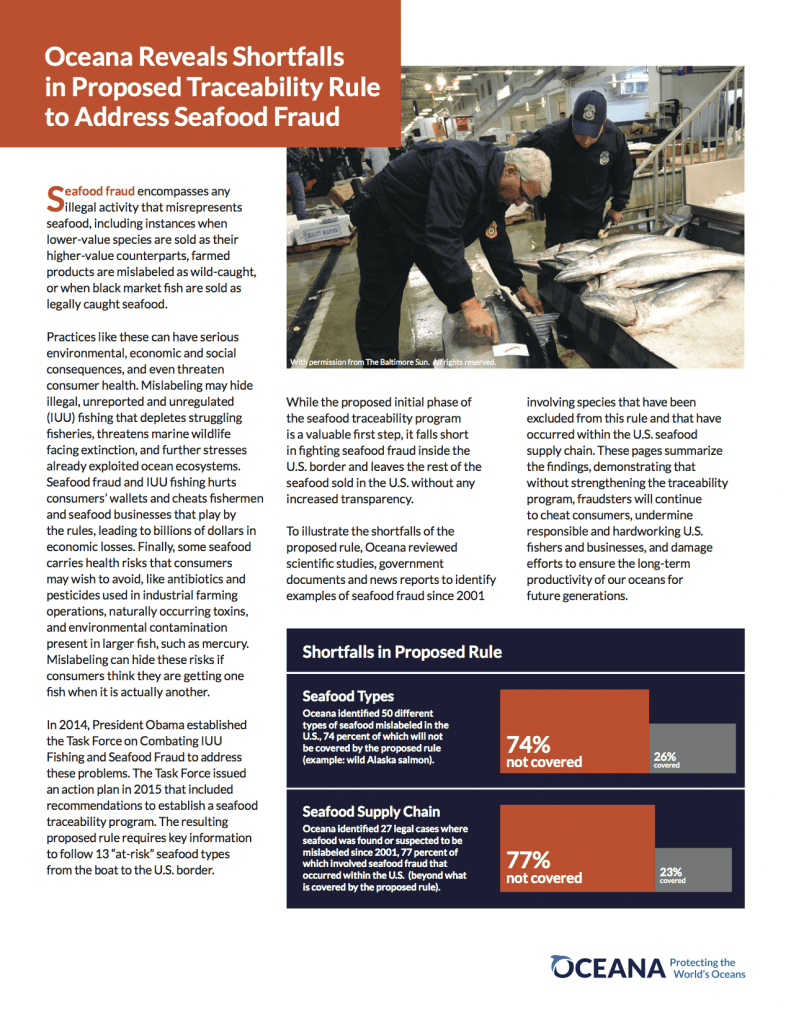Report | June, 2016
Oceana Reveals Shortfalls in Proposed Traceability Rule to Address Seafood Fraud
Oceana’s report analyzes scientific studies, government documents and news reports since 2001 that identify examples of seafood fraud (species substitution and mislabeling) and highlights how the Obama administration’s proposed traceability rule falls short in fighting seafood fraud within the U.S. Specifically, the proposed rule does not increase transparency for the majority of the seafood sold in the U.S., and should be expanded to include all seafood and extended through the full supply chain.
The Presidential Task Force on Combating Illegal, Unreported and Unregulated (IUU) Fishing and Seafood Fraud, which was originally established in 2014, issued an action plan in 2015 that included recommendations to establish a seafood traceability program. While the proposed rule, also known as the draft “Seafood Import Monitoring Program,” is a valuable first step, Oceana says that by only requiring traceability for 13 “at-risk” seafood types from the boat to the U.S. border, many opportunities for continued seafood fraud remain.
Among the reports key findings include:
- Seventy-four percent (37) of the 50 types of seafood identified as mislabeled in the U.S. will not be covered by the proposed rule (example: wild Alaska salmon)
- Of the 27 legal cases where seafood was found or suspected to be mislabeled since 2001, 77 percent (21) involved seafood fraud that occurred within the U.S. (beyond the reach of the proposed rule)
- The proposed rule does nothing to trace the fish that are substituted in mislabeling – the imposter fish that are called something else to fetch a higher price or hide their less-desirable origins (example: selling escolar as “white tuna” or Asian catfish as “grouper”)
- Sixty-two percent of the 180 seafood species identified as imposters in Oceana’s analysis carry health risks, and 21 percent face the threat of extinction, as determined by the International Union for the Conservation of Nature (IUCN)
Download the Fact Sheet
Download the Map
Read the Press Release
Media Contact: Dustin Cranor, 202.341.2267; 954.348.1314 (cell); dcranor@oceana.org




